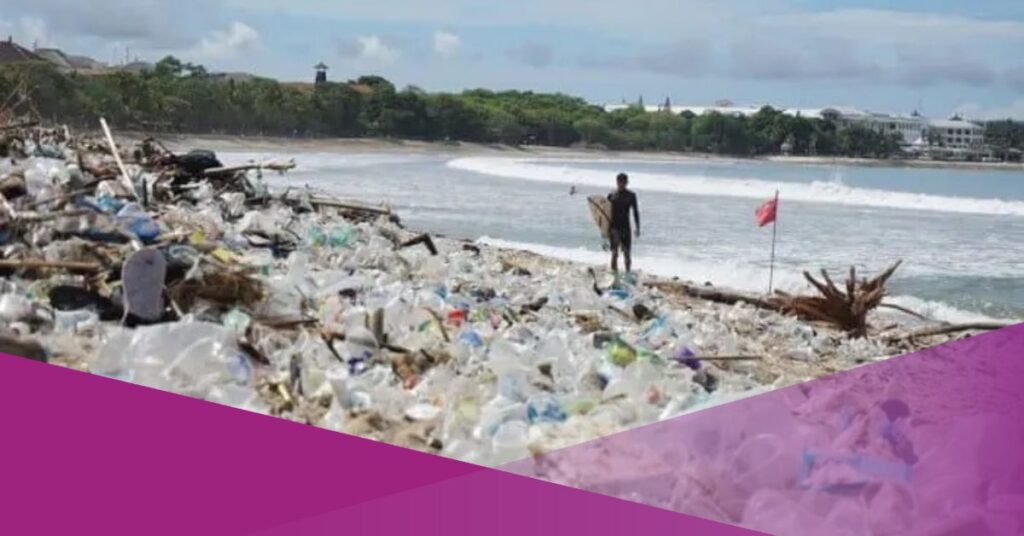Bali’s Trash-At the end of each year, the sad reality of Bali’s beaches becomes increasingly apparent. The once-pristine shores of the Island of the Gods, including those in Seminyak, Legian, Kuta, Tuban, Kedonganan, and Jimbaran, are transformed into regular gathering places for marine debris.
Gary Bencheghib, the Co-founder of Sungai Watch, an environmental organisation dedicated to preventing plastic waste from entering the sea, highlighted the severity of the issue.
In an Instagram post on Tuesday, 24 December 2024, Gary described Jimbaran Beach as one of the most severely affected areas.
“This is the first day of the wave of garbage (washed ashore from the sea) that arrived yesterday evening (Monday, 23 December 2024),” he explained in a video.
He further stated that trash scatters everywhere, from the Four Seasons to the Kedonganan pier.
Gary also pointed out specific types of waste, such as multilayer plastic cups and disposable plastic containers, among the debris.
At the end of each year, the increased rainfall and strong winds exacerbate the problem, leading to significant amounts of waste washing up on Bali’s shores. Coastal areas such as Seminyak, Legian, Kuta, Tuban, Kedonganan, and Jimbaran bear the brunt of this environmental crisis.
On Kedonganan Beach in Jimbaran, inorganic waste dominates the mix of debris, which includes wood and other discarded materials.
The accumulation of Bali’s trash has forced some beachfront restaurants to temporarily close, as the garbage—ranging from twigs and tree trunks to plastic waste—renders the beaches unusable for tourists.
Indonesian Tourism Industry Association (GIPI) suggests collecting garbage at sea before it reaches Bali’s beaches
The Indonesian Tourism Industry Association (GIPI) proposed that they intercept waste at sea before it reaches Bali’s shores to address the issue. According to Ida Bagus Agung Partha Adnyana, Chairman of GIPI Bali, this strategy was discussed with the Ministry of Tourism (Kemenpar).
He emphasised that the garbage problem is a serious concern for tourism, but stressed that progress requires a collaborative effort, rather than regions shifting blame over the source of the waste.
For the immediate term, the Head of Bali’s Tourism Office, Tjok Bagus Pemayun, showed that there are no plans to collect waste at sea. Instead, efforts are focused on strengthening human resources and equipment to clear garbage from the beaches.
He noted that district governments have deployed garbage trucks to address the problem, particularly as the debris often includes large items such as tree trunks and logs, which require specialised transport vehicles.
This annual influx of Bali’s trash continues to threaten the natural beauty and tourism appeal of Bali’s beaches, underscoring the urgent need for sustainable and coordinated solutions.

































